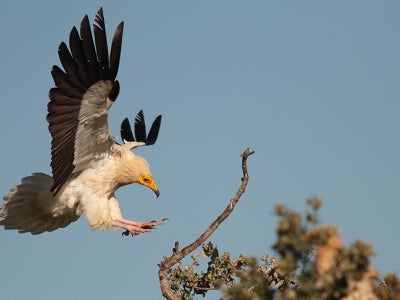
sgp-yemen-hp_5.jpg

SGP-logo.png
May 28th, 2012
Socotra Island, a World Heritage Site (WHS) for nature, is the largest dry island in the region. It is located in the Indian Ocean, about 400km offshore from mainland Yemen and with a surface area of about 4,000 square kilometers. The survival of local Socotra communities with approximately 45,000 inhabitants depends on fishing and herding livestock, with improved water management and conservation, a key concern for humans and animals (including wildlife) during the dry season.
Building on traditional practices, the GEF Small Grants Programme (SGP), implemented by UNDP, has supported the continuation and revitalization of indigenous community management systems for natural resource utilization on Socotra Island.

sgp-yemen-map.jpg
Immediate benefits of the project included the reduced pressure on the environment, improved resource management as well as increased water security for the local communities. The project also created a better understanding of the importance of conservation of biological and natural resources and their sustainable uses as well as adapting to climate change impacts among communities in the region. Revitalizing traditional practices of rain-water harvesting has improved the availability of water in grazing areas and hence reduced animal migration in search of water, avoiding the resulting erosion in approximately 3,000 hectares of land.
The socio-economic benefits of the project include improved water supply for the community as well as reduced expenses for water transport from other regions to this island community. "Thank God and thanks to the GEF Small Grants Programme in Yemen, which has made our lives much easier", said Sheikh Ghadef S. Ghadef, head of one of the Ma'la plateau communities in Socotra.

sgp-yemen-1.jpg

sgp-yemen-2.jpg
The project has drawn the interest of the government as it strongly focuses its policies on water security and was also supported by a government strategy to improve the livelihoods of remote rural communities. The techniques and lessons learnt by the Ma'la pastoral communities will be of great help when addressing water management issues in other regions of Socotra. The success story of effective water management and conservation measures to overcome water shortages by these communities is already becoming widely adopted on the island. Several communities are interested in replicating this experience. The project has also raised awareness of the local communities in Socotra, which are becoming increasingly pro-active in conserving their environment and taking measures to promote sustainability of their livelihoods.
Background for editors
About the GEF
The GEF unites 182 countries in partnership with international institutions, civil society organizations (CSOs), and the private sector to address global environmental issues while supporting national sustainable development initiatives. Today the GEF is the largest public funder of projects to improve the global environment. An independently operating financial organization, the GEF provides grants for projects related to biodiversity, climate change, international waters, land degradation, the ozone layer, and persistent organic pollutants.
Since 1991, GEF has achieved a strong track record with developing countries and countries with economies in transition, providing $10 billion in grants and leveraging $47 billion in co-financing for over 2,800 projects in over 168 countries. For more information, visit www.thegef.org.
About the GEF Small Grants Programme
Launched in 1992, GEF SGP supports activities of nongovernmental and community-based organizations in developing countries towards climate change abatement, conservation of biodiversity, protection of international waters, reduction of the impact of persistent organic pollutants and prevention of land degradation while generating sustainable livelihoods.
Since its creation, GEF SGP has provided over 14,500 grants to communities in over 125 developing countries. Funded by the Global Environment Facility (GEF) as a corporate programme, GEF SGP is implemented by the United Nations Development Programme (UNDP) on behalf of the GEF partnership, and is executed by the United Nations Office for Project Services (UNOPS).
Media contacts:
Tamara Tschentscher, Knowledge Management and Communications Consultant, GEF SGP, tamara.tschentscher@undp.org, 646-781-4353
John Diamond, Senior Communication Officer& Spokesperson, Global Environment Facility
jdiamond@TheGEF.org, (202) 458-7953
